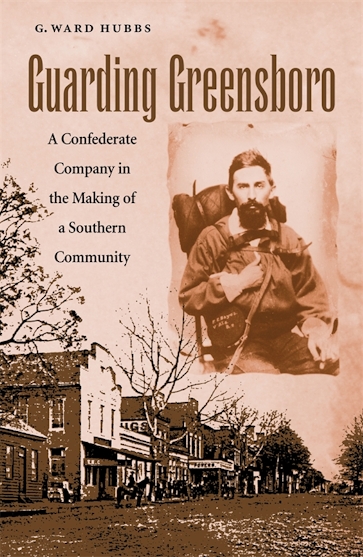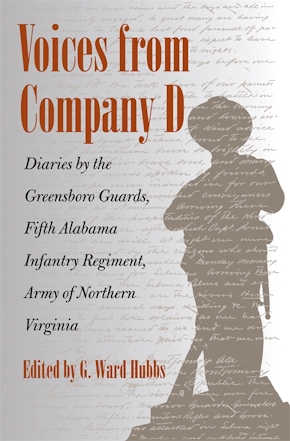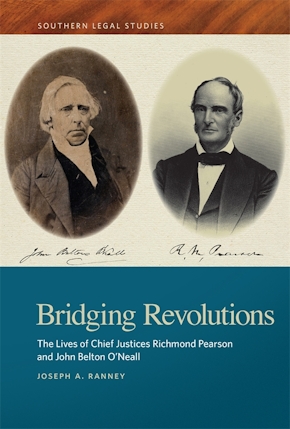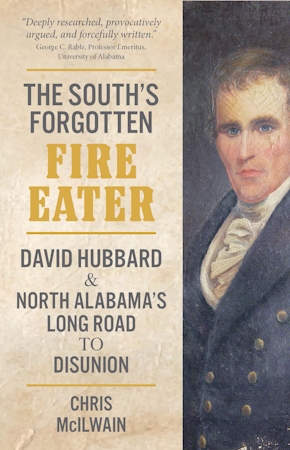Guarding Greensboro
A Confederate Company in the Making of a Southern Community
Title Details
Pages: 330
Illustrations: 24 b&w photos, 12 figures
Trim size: 6.120in x 9.250in
Formats
Hardcover
Pub Date: 08/25/2003
ISBN: 9-780-8203-2505-7
List Price: $38.95
Related Subjects
Guarding Greensboro
A Confederate Company in the Making of a Southern Community
Skip to
- Description
- Reviews
- Awards
Historian G. Ward Hubbs first encountered the Confederate soldiers known as the Greensboro Guards through their Civil War diaries and letters. Later he discovered that the Guards had formed some forty years before the war, soon after the founding of the Alabama town that was their namesake. Guarding Greensboro examines how the yearning for community played itself out across decades of peace and war, prosperity and want.
Greensboro sprang up as a wide-open frontier town in Alabama's Black Belt, an exceptionally fertile part of the Deep South where people who dreamed of making it rich as cotton planters flocked. Although prewar Greensboro had its share of overlapping communities—ranging from Masons to school-improvement societies—it was the Guards who brought together the town's highly individualistic citizenry.
A typical prewar militia unit, the Guards mustered irregularly and marched in their finest regalia on patriotic holidays. Most significantly, they patrolled for hostile Indians and rebellious slaves. In protecting the entire white population against common foes, Hubbs argues, the Guards did what Greensboro's other voluntary associations could not: move citizens beyond self-interest.
As Hubbs follows the Guards through their Civil War campaigns, he keeps an eye on the home front: on how Greensborians shared a sense of purpose and sacrifice while they dealt with fears of a restive slave populace. Finally, Hubbs discusses the postwar readjustments of Greensboro's veterans as he examines the political and social upheaval in their town and throughout the South. Ultimately, Hubbs argues, the Civil War created the South of legend and its distinctive communities.
A well-thought-out study of how the Civil War fit into community life in the Alabama plantation belt. This prodigiously researched book demonstrates how trauma solidified the white population, for better or worse.
—Michael Fitzgerald, author of Urban Emancipation: Popular Politics in Reconstruction Mobile, 1860-1890
Employing a novel and immensely promising approach, Hubbs places the Greensboro Guards within the context of the community from which they emerged, which they represented in Confederate service, and to which they returned at the end of the war.
—Gary W. Gallagher, author of Lee and His Army in Confederate History
[A] well-done model of local history.
—Choice
Hubbs uses meticulous research to identify the elements of social cohesion that produced tile settlement and united its white population. . . . A significant contribution to the study of the South, the Civil War, and the meaning and importance of community in historical context.
—Georgia Historical Quarterly
Hubbs has done a remarkable job. In his exploration of this small Alabama town and the role the volunteer military company played in fostering community identity, Hubbs underscores some of the powerful themes of the nineteenth-century Southern experience. . . . A compelling and useful addition to homefront literature.
—Robert B. Gilpin, H-Net Civil War
Civil War historians of all backgrounds should move Hubbs's study . . . into the must read column of their book lists.
—Barton A. Myers, H-Net South
Commended
Peter Seaborg Award for Civil War Scholarship, George Tyler Moore Center
Winner
Jefferson Davis Award, Museum of the Confederacy
Winner
James I. Robertson Prize, Robert E. Lee Civil War Library and Research Center



